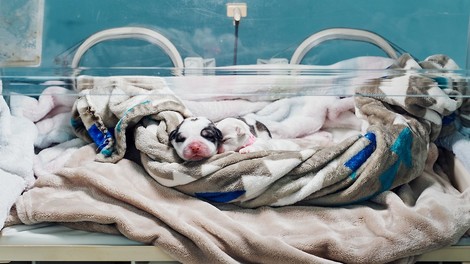Your podcast discovery platform
Curious minds select the most fascinating podcasts from around the world. Discover hand-piqd audio recommendations on your favorite topics.

piqer for: Global finds Deep Dives
Catalina Lobo-Guerrero is a freelance journalist and anthropologist currently living in Barcelona, Spain. For the past decade she has been working as an investigative journalist and correspondent in Bogotá, Colombia and Caracas, Venezuela where has written about politics, corruption, the armed conflict and violence. Her work has been published by The New York Times, The Guardian, El País and other smaller and independent media outlets in Latin America.
Inside The Very Big, Very Controversial Business Of Dog Cloning
Barbara Streissand came out as a "cloner" last march. But while everyone else focused on which celebrities were making copies of their deceased pets, Vanity Fair actually decided to hire someone who knows the subject to write the story on how this controversial business works, how much it costs and where it all started.
In the outskirts of Seoul, South Korea, actually. More specifically inside Sooam, the world’s first cloning company, "a modern day version of Frankenstein’s castle" where Dr. Hwang Woo-suk has cloned more than 1,000 dogs at a cost of up to $100,000.
Dr. Hwang used to be a reputed surgeon at Seoul’s National University. In 2004 he published an article claiming he had successfully cloned a human embryo. Two years later, he was not only kicked out of the faculty after it was discovered that it was all a hoax, but he ended up in jail. He was sentenced for two years after it was proven that he had been fabricating evidence, embezzling government funds and illegally paying for donor eggs from women working in his lab.
After leaving prison, he continued research on his own, using somatic cell nuclear transfers with surrogate mothers to create puppies with the DNA from deceased pets. The process is extremely difficult – two out of three puppies die – and the mothers suffer in the process, after having been injected with hormones, over and over again. Animal rights activists have protested against the cruelty and cost of the procedure, while there are many dogs without a home. Other scientists worry more about the morality of cloning and bioengineering.
Dr. Hwang is still banned by the South Korean government to experiment with human eggs and stem cells, but he has received other grants to continue researching on melanoma and he is allowed to clone dogs, pigs, cows and even to try to resurrect extinct species like the woolly mammoth from ancient cells recovered in the frozen tundras.
Stay up to date – with a newsletter from your channel on Deep Dives.
